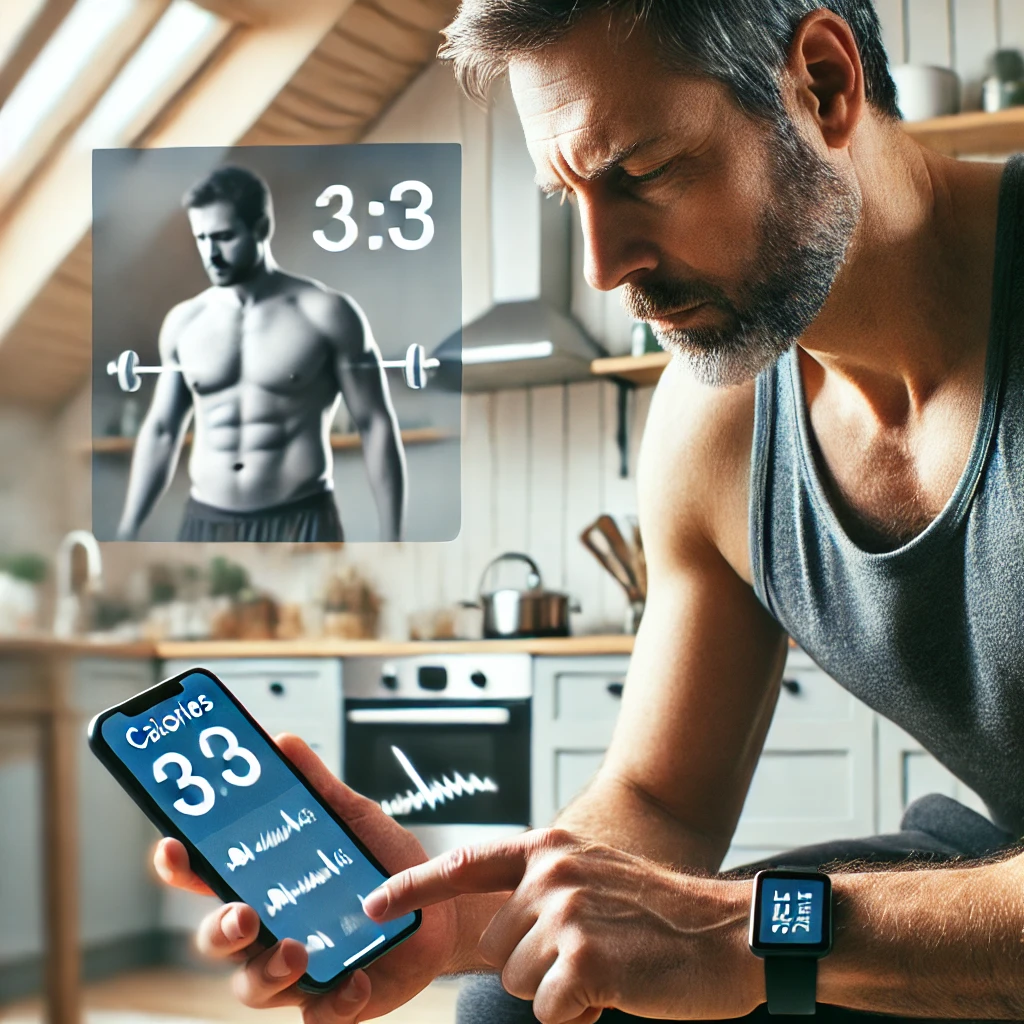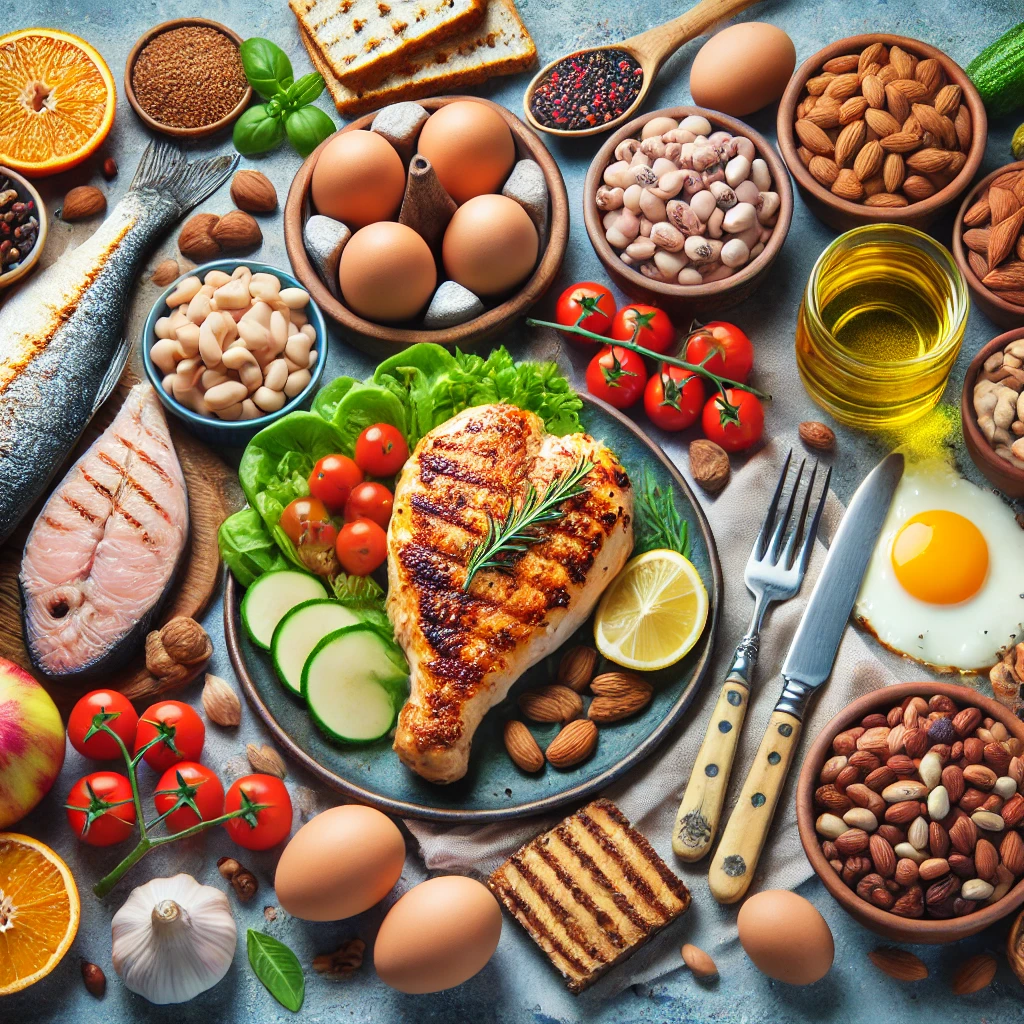Ready to take control of fat loss once and for all? These fat loss tips are designed to give you exactly what you need for success—without any gimmicks or confusion. We’ll cover the best way to lose body fat using practical, science-backed strategies that anyone can follow. Say goodbye to the constant diet rollercoaster and hello to real, sustainable progress. Dive in to discover a clear path to a leaner, healthier you.
Why Are We Still Asking for the Best Way to Lose Body Fat?
You’d think that eating less to reduce body fat would be easy to understand, right? Well, it’s not. So, why is dieting confusing, and why are people still searching for articles on weight loss mastery?
Achieving an optimal body fat level is crucial for overall health. I’m not talking about the modern-day Instagram definition of unsustainably ripped, where someone is a protein shake away from collapsing. Instead, we’re aiming for healthy levels of body fat (10-18% for men and 20-30% for women).
Many fitness influencers are within the top 5% of the gene pool (though not always). Standard fat loss tips apply to them—they often look impressive regardless of diet.
Stop comparing yourself to them. Can you achieve the body of your favourite Instagram influencer? Short of becoming them, no. Continue to follow the bad ones (there are many) and you’ll be kissing goodbye to a huge amount of money whilst expecting your abdominal fat to disappear overnight.
Navigating Today’s Snake Oil World
The overwhelming amount of contradictory information on fat loss can be dizzying. This morning, I glanced at social media and encountered a flood of messages, each offering a different approach to fat loss. Some dismiss the importance of calories, while others advocate extreme diets.
Amidst this noise, it’s vital to establish sustainable strategies, emphasising the importance of consistency for long-term progress.
There are some great fitness influencers out there (perhaps a topic for another day), but for every decent one, there are ten others hiding their steroid/fat loss pill addictions, bulimia, or health issues. The problem is, you only see the highlight reel—much like reading about Superman’s adventures while missing his mundane life as Clark Kent.
Today’s Society and Fat Loss Tips Confusion
The abundance of information and easy access to calorie-dense foods have contributed to a widespread health crisis, benefiting businesses along the way. Believe it or not, humans weren’t designed to have such convenient access to chocolate bars!
Imagine this: if everyone were handed easy fat loss tips, how many companies would lose business? Would a shady mechanic rip off someone who’s savvy in auto repair? The same applies here.
While certain approaches may be superior for health and fat loss (a topic for another day), overthinking can become your worst enemy. Be honest—how many diets have you tried in recent years? Do you have any long-term success to show for your efforts? Why is this?
The Best Way to Lose Body Fat Has Never Changed
Fat accumulation is the body’s way of storing energy for lean times. However, we were never meant to carry excess body fat long-term. Losing fat occurred naturally in the past. According to a study published in the Journal of Clinical Endocrinology & Metabolism, “fat storage is a survival mechanism that has evolved over millennia, allowing humans to survive periods of food scarcity” (Dr. Sarah Hall).
Losing body fat and mastering weight loss is about giving your body the opportunity to use those stored energy reserves. To achieve this, you must monitor your calorie deficit to ensure it aligns with your fat loss goals. This remains the only guaranteed way to lose body fat. A meta-analysis of weight loss interventions confirms that “a sustained calorie deficit is essential for fat loss, irrespective of the dietary approach taken” (Smith et al., 2021).
Every diet plan out there, whether it masks the truth or not, is simply a method of ensuring you eat less. It’s often repackaged and sold in various forms, but the principle remains the same.
10 Guaranteed Fat Loss Tips
1. Track Your Calories

What gets measured gets done! You need to be aware of what you’re consuming. Use tools like MyFitnessPal to track calories (no need for the premium version). Prioritise tracking your calories because it’s key to success.
According to research published in the American Journal of Preventive Medicine, “self-monitoring calorie intake significantly increases awareness of eating habits and supports fat loss by helping individuals make better food choices” (Burke et al., 2011). It’s also been shown to reduce the common tendency to underestimate portion sizes.
2. Easy Calorie Calculation
To calculate your maintenance calories, multiply your current bodyweight in pounds by 15. For instance, if you weigh 180 lbs, that’s 180 x 15 = 2,700 calories per day. This assumes you’re relatively active (walking 5,000+ steps daily or doing regular workouts). If in doubt, multiply by 14 instead.
3. Fat Loss Calorie Calculation
To lose fat, multiply your goal bodyweight in pounds by 13 (if you’re active) or 11 (if you’re sedentary). For example, if your goal is 170 lbs, multiply that by 13 = 2,210 calories. This ensures you eat fewer calories than your body needs, forcing it to burn stored body fat.
4. Prioritise Protein

Eat 1 gram of protein per pound of your goal bodyweight per day. This preserves muscle and ensures most of the weight you lose is fat, not muscle. Studies from the International Journal of Obesity have shown that “higher protein intake not only supports muscle retention during calorie restriction but also increases fat loss” (Pasiakos et al., 2015).
Protein has a higher thermic effect than fats and carbohydrates, meaning your body uses more energy to digest and metabolise it. As we age, protein becomes even more crucial for preserving lean muscle mass.
5. Split Fat and Carbs Equally
How you split carbs and fats is entirely up to you. Don’t get caught up in demonising either macronutrient. Focusing on tracking calories and protein will get you 90% of the way to your fat loss goals. I prefer to lean higher to the lower carb side of the equation, as I generally feel my best prioritising fat and keeping carbs a little lower.
6. Don’t Use a Fitness Tracker for Calorie Burn
While fitness trackers can be useful, don’t rely on them for calorie burn estimates. Also, don’t eat back the calories they claim you’ve burned. Aim for 5,000-10,000 steps a day to improve general fitness.
Beyond structured workouts, it’s important to increase Non-Exercise Activity Thermogenesis (NEAT). “NEAT accounts for a significant portion of daily energy expenditure and includes activities such as walking, standing, or fidgeting,” according to Dr. James Levine in the Journal of Obesity (2015). Small, consistent movements can contribute up to 20% of your daily energy expenditure.
7. Meal Frequency Is Irrelevant
Science tells us that meal frequency doesn’t matter. You may have read that intermittent fasting is the holy grail or that eating six times a day is essential. Neither is true. “The body’s metabolism adapts to the energy intake over a 24-hour period, making meal frequency irrelevant to fat loss,” says Dr. Jane White in the American Journal of Clinical Nutrition (2020). Focus on hitting your protein and calorie targets—how you divide them up is entirely personal.
8. Learn About Food Volume
You could lose body fat eating McDonald’s every day (though I don’t recommend it). The key is to understand food volume. Whole foods like fruits and vegetables are more filling and nutrient-dense than processed foods, making it easier to stay within your calorie limit.
High-volume, low-calorie foods help increase satiety. “Foods with a high water and fibre content, like fruits and vegetables, allow people to eat larger portions while consuming fewer calories,” explains Dr. Barbara Rolls, creator of the Volumetrics diet (Penn State University, 2016). This is a crucial strategy for sticking to your diet without feeling deprived.
9. You Cannot Out-Exercise a Bad Diet
Exercise is vital for health but isn’t a fat loss tool. You can burn 200 calories on the elliptical in 45 minutes, but a single chocolate bar can undo that. “Diet is the primary determinant of fat loss,” states the Journal of Obesity, confirming that *”exercise should complement fat loss efforts rather than compensate for a poor diet”* (Brown et al., 2022).
10. Weigh Yourself Weekly
Weigh yourself weekly and, if possible, invest in a body fat scale to track progress. Tracking progress helps keep you accountable and provides objective data, which is especially useful if you hit a plateau.
Put these fat loss tips into practice and I assure you of this – you’ve found the best way to lose body fat.
My Own Journey: Finding the Best Way to Lose Body Fat
As I’ve shared in my “About Me” section, I used to work out 12 hours a week and didn’t lose a pound. Why? Because I didn’t understand the basics of fat loss (tracking calories) and mistakenly thought exercise alone was the solution.
During that period, I likely gained weight because I was constantly hungry and indulged in treats like Nutella (my kryptonite). A helpful tip? Buy only what you plan to eat that day and avoid keeping treats in the house.
Practical Application of These Fat Loss Tips

I’ve provided strategic guidance more than rigid rules. The secret to successful dieting is finding a sustainable way to maintain a calorie deficit. Remember, meal frequency is irrelevant, so choose a schedule that fits your lifestyle, regardless of whether you’re at home or travelling within the day.
By prioritising protein and tracking your calories, you’ll achieve fat loss while enjoying flexibility.
I hope you found fat loss tips guide helpful! For more fat loss and fitness advice, subscribe to my site, and feel free to reach out with any questions.
Thanks for reading,
Matt


4 thoughts on “10 Fat Loss Tips: the best Way To Lose body Fat”
Comments are closed.